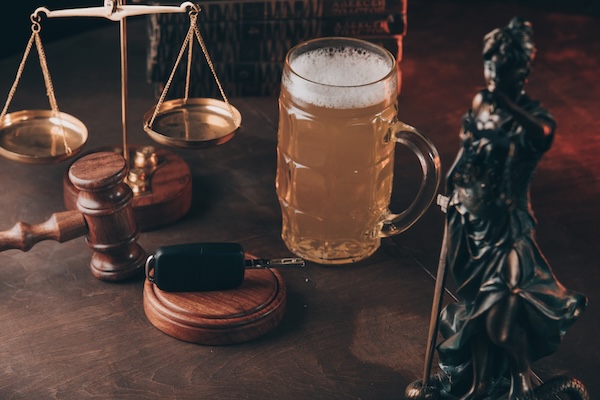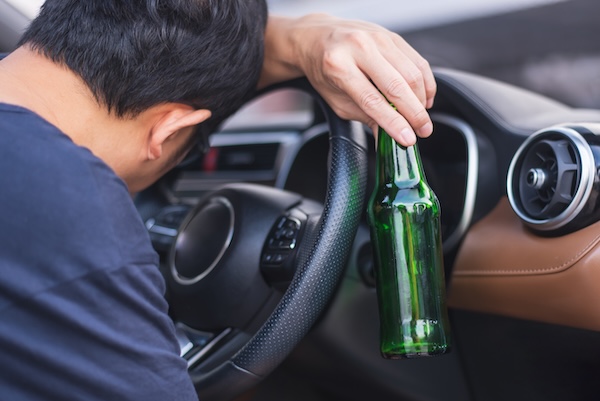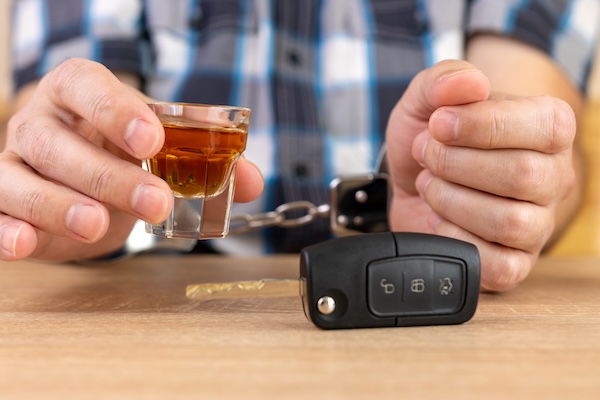What You Need to Know About North Carolina DUI Laws
Facing a DUI charge in North Carolina can be an intimidating and life-altering experience. Whether it’s your first offense or you have a history of prior DWI convictions, the consequences of being found guilty under North Carolina DUI laws are serious — including possible jail time, steep court costs, and driver’s license suspension.
The legal system surrounding driving while impaired (DWI) is complex, and understanding your rights, responsibilities, and options is essential. That’s where a skilled DUI defense lawyer comes in — to guide you through the process, protect your rights, and fight for the best possible outcome.
At Asheville DUI Guy, we’re committed to helping individuals across Asheville, NC and beyond navigate the intricacies of North Carolina DWI laws. From the moment you’re stopped by a law enforcement officer to your day in court, every decision matters.
This guide will walk you through the key aspects of DWI laws in North Carolina, including how charges are determined, what penalties you may face, and the importance of aggravating and mitigating factors in your case. If you’re dealing with a DWI in North Carolina, understanding the law is the first step — having the right DUI defense lawyer is the next.
DUI vs. DWI in North Carolina
In North Carolina, the legal term is DWI (Driving While Impaired), although people often use DUI (Driving Under the Influence) interchangeably. Both terms refer to operating a vehicle while impaired by alcohol, drugs, or both.
Under North Carolina DWI laws, a person can be convicted if their BAC is 0.08% or higher, if they’re under the influence of a substance, or if their abilities are impaired—even if their BAC is below the legal limit. For commercial drivers, the BAC limit is 0.04%, and underage drivers face zero-tolerance policies.
While DUI may be more common nationwide, the legal consequences in North Carolina are the same, including possible jail time, license suspension, substance abuse assessment, and court costs.
Blood Alcohol Content (BAC) Limits in North Carolina
Understanding blood alcohol content is essential when facing DWI charges in North Carolina. Your BAC measures the level of alcohol in your bloodstream and plays a critical role in determining whether you are impaired under North Carolina DWI laws.
The legal blood alcohol concentration limits in NC North Carolina are as follows:
- 0.08% for drivers age 21 and older operating a standard motor vehicle
- 0.04% for anyone driving a commercial vehicle
- 0.00% for drivers under 21, due to the state’s zero tolerance policy
You can be charged with driving while impaired even if your BAC is below the legal limit, as long as your ability to drive is affected. Under North Carolina law, a DWI conviction doesn’t require you to exceed a specific BAC level—impairment alone is enough.
BAC is determined through chemical analysis, such as a breath, blood, or urine test. Refusing this test can lead to an immediate driver’s license suspension under the state’s implied consent laws. This revocation period begins before your case even reaches court.
A BAC of 0.15% or higher is considered an aggravating factor under NC DWI laws. This may result in enhanced DWI penalties, including longer jail time, mandatory use of an ignition interlock device, and the potential denial of limited driving privileges.
Because your BAC level can directly affect how your case is charged and sentenced, it’s important to understand how North Carolina DUI laws handle chemical testing, alcohol concentration, and license suspension. These details often influence the outcome of a sentencing hearing, especially when aggravating and mitigating factors are considered.
Levels of DUI Sentencing in North Carolina
When it comes to sentencing for DUI in North Carolina, the state uses a structured system based on five levels — Level V through Level I — plus an even more severe category known as Aggravated Level One. These sentencing levels are determined by the presence of aggravating, grossly aggravating, and mitigating factors. The combination of these factors influences the penalties a DUI defendant may face, including minimum jail time, fines, community service, and license suspension.
Here’s a breakdown of the DUI sentencing levels under North Carolina DUI laws:
| Level | Description | Penalties |
|---|---|---|
| Aggravated Level One (A1) | Applies when there are three or more grossly aggravating factors, such as a prior DUI conviction or driving with a child in the car. | Fines up to $10,000, jail time of 12–36 months, no parole unless in substance abuse treatment program. |
| Level One (I) | Two or more grossly aggravating factors, such as serious injury or revoked license. | Fines up to $4,000, minimum jail sentence of 30 days to 24 months. |
| Level Two (II) | One grossly aggravating factor. | Fines up to $2,000, jail time of 7 days to 12 months. |
| Level Three (III) | Aggravating factors outweigh mitigating ones. | Fines up to $1,000, jail time of 72 hours to 6 months, possible limited driving privileges. |
| Level Four (IV) | Aggravating and mitigating factors are roughly equal. | Fines up to $500, minimum jail time of 48 hours, or community service. |
| Level Five (V) | Mitigating factors outweigh aggravating ones. | Fines up to $200, 24 hours jail time, or equivalent community service and substance abuse assessment. |
Each sentencing level can also include mandatory participation in alcohol assessment and recommended treatment programs, the use of an ignition interlock device, and long periods of driver’s license suspension or revocation. In cases of habitual impaired driving, the charge becomes a Class F felony, with permanent revocation of driving privileges and a much more severe sentence.
Understanding where your case falls within this structure is critical — and having an experienced DUI defense lawyer can help ensure that every mitigating factor is presented effectively at your sentencing hearing.
Aggravating Factors in DUI Cases
In North Carolina, aggravating factors can increase the severity of sentencing in DUI cases. These factors indicate the offense was particularly dangerous or irresponsible and may elevate the case to a higher DUI sentencing level—especially if they outweigh any mitigating factors.
Common aggravating factors include:
- BAC of 0.15% or higher
- Reckless driving
- Prior DUI conviction more than seven years old
- Driving with a revoked license (not related to a DUI)
- Passing a stopped school bus
- Speeding more than 30 mph over the limit
- Causing a minor accident
- Negligent driving
- Convictions for other motor vehicle offenses within five years
When aggravating factors outweigh mitigating ones, the sentence may be elevated to Level Three or Level Four, leading to harsher penalties like longer jail time, higher fines, and possible community service or an ignition interlock device.
Vehicle Impoundment and License Suspension Under North Carolina DUI Laws
When someone is charged with driving while impaired (DWI) in North Carolina, the law imposes immediate administrative penalties—even before a conviction. These include both vehicle impoundment and license suspension, and they are enforced under specific provisions of North Carolina DUI laws.
Vehicle Impoundment
- After a DWI charge, the driver’s vehicle is typically impounded for 10 days, even if the driver doesn’t own the vehicle.
- This requirement is mandatory in many cases, especially if the driver has a prior DWI conviction or was operating with a revoked license.
- To recover the vehicle, the driver or owner must pay all towing and storage fees.
Civil License Revocation
- A DWI charge triggers an automatic civil license revocation for a minimum of 30 days, beginning at the time of arrest.
- This is a separate administrative action from any criminal penalties and applies even before a court date.
Limited Driving Privileges
- After 10 days, the driver may be eligible for limited driving privileges.
- To qualify, the driver must:
- Complete a substance abuse assessment
- Pay a civil revocation fee
- Meet other eligibility requirements set by North Carolina law
These penalties are part of the state’s broader effort to discourage impaired driving and limit repeat offenses. Because they are enforced quickly and carry significant consequences, it’s critical to work with a DUI defense lawyer who understands the legal process and can help you protect your driving privileges under North Carolina DUI laws.
Felony DUI in North Carolina
In North Carolina, some DWI charges are classified as felonies, leading to more severe penalties. The most common felony offense is Habitual Impaired Driving, which applies when a driver has three or more prior DWI convictions in the last ten years, resulting in a Class F felony charge.
Penalties for habitual impaired driving include:
- 12 months mandatory jail time (no parole)
- Permanent revocation of the driver’s license
- Ineligibility for limited driving privileges
- Required substance abuse assessment and possible treatment
A DWI can also become a felony if it causes serious harm, such as serious injury or a fatal crash. In these cases, additional felony charges like felony death by vehicle or assault by impaired driving may apply.
Consequences for felony DWI offenses include:
- Longer jail time
- Permanent license revocation
- Significant court costs and a lasting felony conviction
Felony DWI charges in North Carolina carry severe consequences, affecting both your freedom and your driving future.
DUI Laws and Consequences for Underage Drivers
North Carolina DUI laws enforce a strict zero-tolerance policy for drivers under 21, making it illegal for them to have any alcohol in their system. Even a BAC as low as 0.01% can result in a DWI charge for underage drivers, with serious consequences.
Penalties include:
- Immediate driver’s license suspension
- Fines and court costs
- Community service
- Mandatory substance abuse assessment
- Possible jail time
Underage drivers may also face DWI charges based on impairment, even with a low BAC. Convictions can lead to loss of driving privileges, issues with school or scholarships, and long-term record impacts.
These cases are treated with great seriousness in North Carolina, and the consequences can affect a young person’s future.
Why Asheville DUI Guy is the Right Choice for Your Defense
Facing a DWI or DUI charge in North Carolina requires a law firm that understands the legal system and is dedicated to protecting your rights. At Asheville DUI Guy, we offer:
- Experienced Lawyers: Our team specializes in DWI defense and has extensive experience handling North Carolina DWI cases. We understand how to navigate the state’s complex laws and have a proven track record of success in securing favorable outcomes for our clients.
- Personalized Attention: We take the time to understand your unique case and develop a defense strategy tailored to your specific needs. We don’t treat clients as just another case; we provide the respect and care that you deserve.
- Aggressive Defense: Whether it’s challenging the evidence, questioning the legality of the stop, or negotiating for reduced penalties, we fight relentlessly to protect your rights and minimize the consequences of a DWI conviction.
- Client-Focused Approach: At Asheville DUI Guy, you’re not just another client. We’re here to answer your questions, keep you informed throughout the legal process, and ensure you make informed decisions at every step.
- Local Knowledge: As a firm based in Asheville, we have deep familiarity with local courts and procedures, allowing us to anticipate challenges and maximize the effectiveness of our defense strategies.
When facing a DWI charge, having the right lawyer is crucial. With Asheville DUI Guy, you’ll have a dedicated team on your side, committed to protecting your rights and securing the best possible outcome.
Contact Asheville DUI Guy Today
If you’ve been charged with a DWI or DUI in North Carolina, it’s crucial to take action immediately. The legal process can be complex, and the consequences of a conviction can be severe. At Asheville DUI Guy, our team of experienced DUI defense lawyers is here to guide you every step of the way.
Whether you’re facing a first-time offense or have prior DWI convictions, we can help you understand your rights, evaluate your options, and fight for the best possible outcome. Don’t wait—contact us today to start building your defense.
Call Asheville DUI Guy now at 828-759-5556 to schedule a consultation and get the expert legal help you need.









